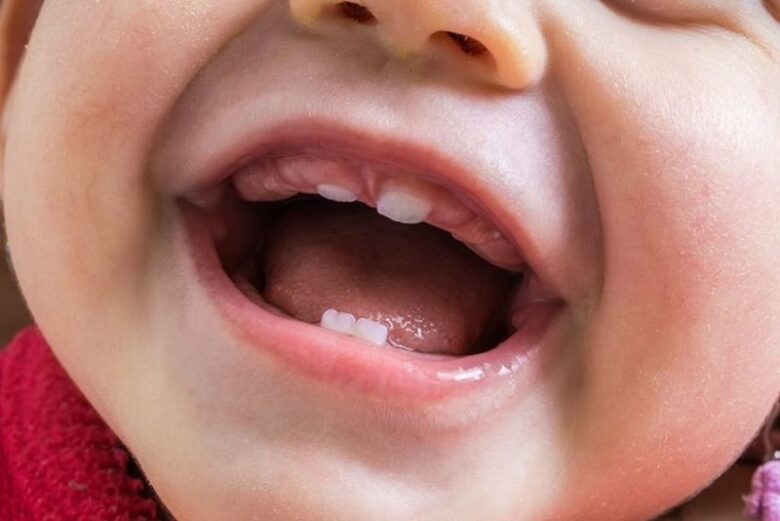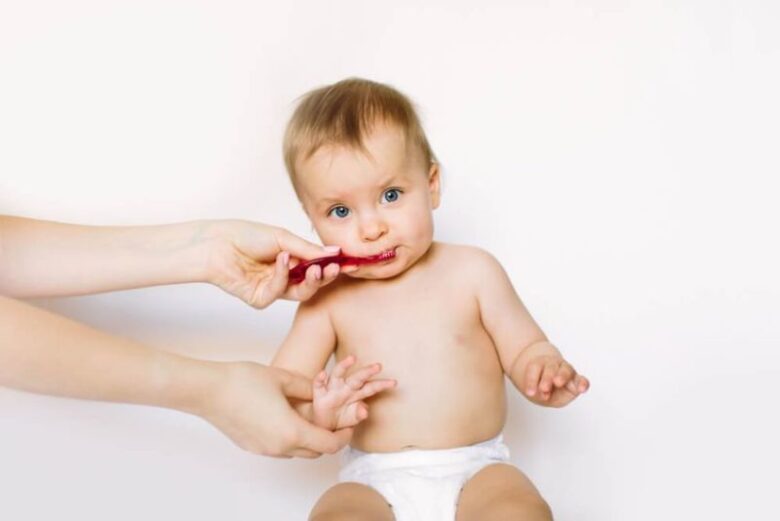We all simply cannot wait for our babies to start teething. However, no matter how expected and beautiful this moment is, it can be somewhat painful – both for the little one and for the parents. So, if your baby is a bit more fussy than usual or you see a white bud in their gums, it means it’s time for their teeth to grow and give them a beautiful smile. However, no matter how much you expect this to happen, there are some things you should know about your baby’s first tooth.
Age of Erupting

In most cases, the first tooth springs out by 6 months of age. However, not every baby develops at the same pace, so if it takes them a bit longer to develop teeth, you shouldn’t worry. Also, the first most common tooth to appear in the lower front one. But, there are babies that will have their first tooth in some other place in the oral cavity. What is more, some babies might not even develop any teeth until their first year, and some may even start teething earlier. However, by the age of 3, most of their little teeth should appear.
The Signs of Teething
Besides your precious little one getting a bit more fussier than usual, there are other signs that tell you that the first tooth is coming out. If you notice any soreness, redness, and tenderness in their gums, it means the tooth is on its way. Also, your child might be restless, or they may sleep less due to gum discomfort. Plus, they may refuse to eat because of the pain in the mouth, and their salivation will increase. So, if you notice any of these, you should know what to do during the teething phase.
What to Do During Teething Phase

Since this is a lot of discomfort for one small baby, you should know how to relieve pain in their gums and help them get through this phase easier. To relieve the pain, you can gently massage their sore gums, or even get them some great teething toys as FuntasticToy recommends. Also, make sure there are no food particles left on their gums, and regularly rinse them with water. After every meal, wipe your baby’s mouth with a clean wet gauge and make sure their mouth is always clean.
In addition to this, you should introduce regular brushing and cleaning as soon as the first tooth starts appearing. Make sure to brush their teeth twice a day and assist with brushing until your child is 6 years old. Lastly, you should start introducing fluoride into their lives. Fluoride is a mineral that helps with hardening by strengthening the enamel, which further prevents tooth cavities. Mostly, there is fluoride in the water, and it is also recommended for replenishing the minerals. However, don’t overdo it with fluoride because excess fluoride can lead to dental fluorosis.
What to Avoid?

The things you should definitely avoid using are teething tablets, gels with benzocaine, amber necklaces and gels, and tablets used in homeopathy. Teething tablets with the plant poison belladonna and gels with benzocaine are made to numb the pain, but they have some serious side effects and FDA issues warnings against them. In addition to that, homeopathic remedies can have little to no effect, while the amber necklaces pose a serious threat of strangulation and a choking hazard. Plus, we are not even sure they actually work. Your best bet is to focus on proper cleaning and hygiene and fluoride.
When to Consult the Dentist
Even though the first teeth are not going to stay here forever, it doesn’t mean they don’t need to be checked and taken care of. So, the moment the first tooth arrives, you should look for a dentist for your little one. An experienced professional such as juniorsmilesofstafford.com will be able to check on the status of the rest of the teeth and make sure the gums are healthy and properly taken care of. Plus, they will give you valuable advice on proper dental hygiene and how to relieve the baby’s pain.

The first tooth is a joyous and a bit painful moment for the whole family. But if you follow these tips, take proper care of the baby teeth and consult with the professional, your baby is bound to have a healthy and happy smile for the rest of their lives.


